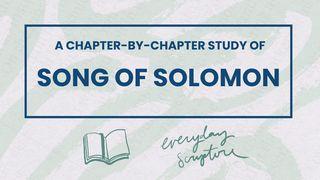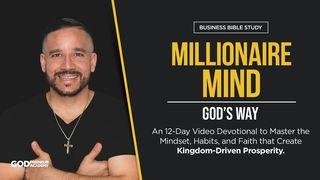Delve Into The ProphetsSample

DAY 5 – HOSEA
The prophet Hosea spoke to the northern kingdom of Israel during the last years of Jeroboam II and throughout the period of great instability that followed his reign. Israel had six different kings in the twenty-two years after Jeroboam died. Four were assassinated and the last was forced off the throne. These weak, briefly reigning kings kept changing their foreign policies. Sometimes they tried to appease the rising empire of Assyria by paying tribute and surrendering territory. At other times, they tried to get Egypt to protect them from Assyria. Eventually, Israel and its neighbor Syria formed an alliance against Assyria. They invaded the southern kingdom of Judah to try to get it to join their rebellion. But in response, the Assyrians invaded Israel, and by 722 BC Assyria had completely conquered Israel and carried off much of its population into exile.
Throughout the period of instability after Jeroboam II, the people of Israel remained devoted to worshiping the Lord. They thought this would guarantee them prosperity and victory. But they no longer saw the Lord as the God who had brought them out of slavery in Egypt and established a covenant with them. Instead, they identified him with Baal, a Canaanite nature god. This identification may have begun innocently enough, since ba’al simply means “master” in Hebrew, and the Lord was, after all, the one who had really given Israel the blessings of nature. But by the time of Hosea, the people were worshiping the Lord as if he were Baal. They visited temple and shrine prostitutes, and they adopted the magical practices of fertility cults. These cults immersed the people in the rhythms of the changing seasons and led them to forget the way God had intervened in history and established social justice through the law of Moses.
In his messages, Hosea repeatedly condemned this corrupted worship as spiritual prostitution. He also condemned the nation’s foolish foreign intrigues, its rejection of the moral law, and its callous greed. “There is no faithfulness, no love, no acknowledgment of God in the land,” he protested. “There is only cursing, lying and murder, stealing and adultery.” “The merchant uses dishonest scales and loves to defraud.” But the people rejected Hosea’s warnings and simply mocked him. “The prophet is considered a fool,” he marveled. But when Hosea’s message was rejected, his oracles were set down in writing, like the oracles of Amos, so they’d remain as a testimony against those who had refused them, and so that he’d be vindicated when his predictions eventually came true.
PRAYER: Lord, teach me to worship You in Spirit and in truth.
Scripture
About this Plan

The Old Testament of the Bible is broken into three major sections, the second of which is known as the Prophets. If you didn’t know that, imagine all of the other interesting things you’ll learn in this reading plan as you explore the purpose, context, and background of this fascinating and unique part of God’s Word.
More
We would like to thank Biblica for providing this plan. For more information, please visit: http://www.biblica.com
Related Plans

When Life Feels Empty

30 Days to Confident Faith

God Wants You to Prosper

Man vs. Temptation: A Men's Devotional

1 Gift. 1 Life. 1 Million.

Song of Solomon | Chapter Summaries + Study Questions

BibleProject | Finding God in the Wilderness

Daily Godpreneur: Millionaire Mind

Connection Defeats Porn: How to Strengthen Your Relationship With God and Others to Overcome Lust
